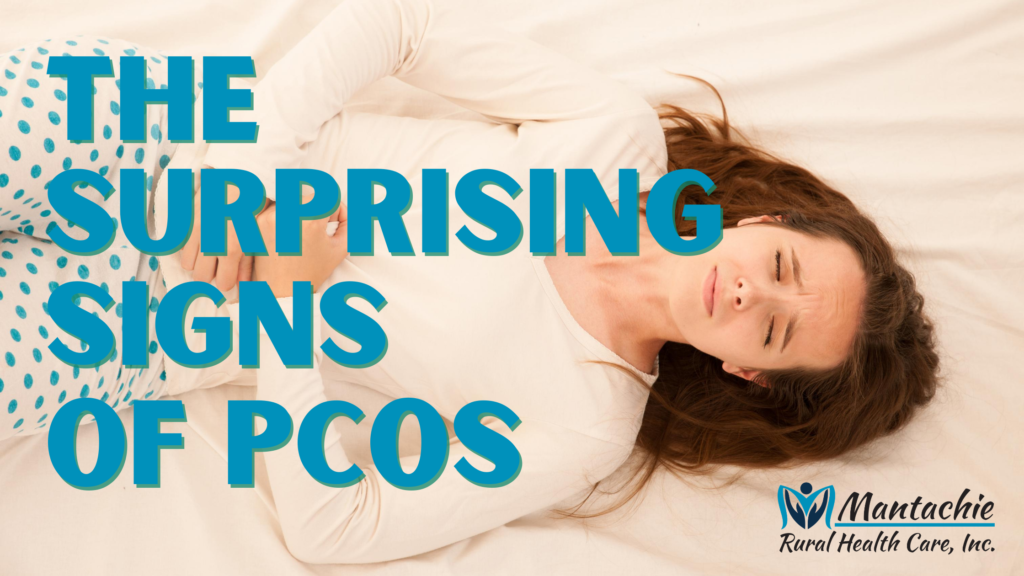
Polycystic ovarian syndrome (PCOS) is an endocrine and metabolic disorder affecting 1 in 10 women of child-bearing age. PCOS is a common condition among women and girls who have reached puberty, however, at least 7 in 10 women with the disorder are undiagnosed.
Because of its name, many assume ovarian cysts and irregular or missed periods characterize PCOS. These are indeed indicators of PCOS but other more unusual signs of the disorder may also be present.
Before you continue reading about these symptoms, it’s important to know that no two PCOS cases are exactly the same. You may or may not share any of these symptoms with another PCOS patient. For instance, infertility is a symptom of PCOS, however many women are able to naturally conceive with no problems while others are able to conceive with fertility treatments. Some PCOS symptoms are a bit more common and while others aren’t as well known.
Unusual PCOS Signs
- Weight gain or obesity that is difficult to manage.
- Unwanted hair growth, known as hirsutism, on areas where men normally grow hair such as the face, arms, back, chest, thumbs, toes, and abdomen. Hirsutism is the result of hormonal changes in androgens.
- Hair thinning or loss
- Acne
- Mood changes such as mood swings, depression, and anxiety.
- Pelvic pain and heavy bleeding may occur during menstruation. Pain in the pelvic area can also occur when women are not bleeding.
- Headaches
- Sleep problems. PCOS is one of several conditions linked to sleep apnea disorder.
PCOS is currently incurable but treatable, although many women never find complete relief from symptoms. Hormonal birth control is the most common treatment of PCOS. Other, non-FDA approved treatments include anti-androgen drugs and Metformin. Anti-androgen drugs block the effect of androgens which reduces body and facial hair growth, acne, and scalp hair loss. Metformin, a medicine commonly used to treat type 2 diabetes, may help restore ovulation and aid in lowering body mass and improving cholesterol levels in women with PCOS. However, these medicines also carry certain risks and still need more studies before they are approved by the FDA.
If any of the mentioned symptoms sound a little too familiar, you may have PCOS. We can discuss your symptoms and give a diagnosis with a women’s health exam, one of the many services offered at Mantachie Rural Health Care. If you receive a positive PCOS diagnosis, we’ll talk about the best treatment options and walk with you each step of the way to getting control of your symptoms. Click here to request a women’s health appointment now.


Speak Your Mind